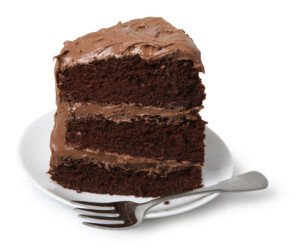Let’s get the straight & narrow on the 16:8 diet: Is it effective or just another hyped up fad?
In the 16:8 diet, you eat whatever you want for eight hours only during a given day, and then absolutely nothing (other than water and zero-calorie drinks) for the other 16 hours. No exceptions.
The hours of feasting are from 10 am to 6 pm.
The hours of fasting are from 6:01 pm to 5:59 am.
Sounds easy enough, right?
Well, according to a study of 23 obese people (average age 45, average body mass index 35), the 16:8 diet has merit.
The participants followed the 16:8 diet for 12 weeks and lost weight plus improved their blood pressure.
• On average they ate 350 fewer calories/day.
• The average weight loss was three percent of their body weight.
• This is the first study of the 16:8 diet, and the full report is in Nutrition and Healthy Aging (June 2018).
During the eight hours that one can eat, there are no limits on type of food or quantity.

Shutterstock/Hurst Photo
On one hand, it’s easy to see why there was some weight loss. Many overeaters do much of their feasting after they get home from work – the very hours that are off-limits from eating on the 16:8 diet.
But on the other hand, knowing that you can’t eat even a bite between 6 pm and bedtime might encourage more overeating earlier in the day to avoid feeling hungry later in the evening.
Overall, though, for the 23 participants, this did not happen enough to thwart a collective weight loss over 12 weeks.
Another point to consider is that for some individuals, most overeating occurs at home for several reasons, and most people are away from home, at work between 10 am and 6 pm — where binge eating can be impossible with certain jobs.
Being at home, watching evening TV shows, means a strong conditioned stimulus for overeating.
The study authors do not recommend that the 16:8 diet be a permanent solution, as it still encourages overeating, and includes unlimited amounts of junk food.
Sustainability of the 16:8 Diet
“16:8 is one of the many versions of intermittent fasting which is not sustainable in the long run,” says Shana Spence, MS, RDN, CDN, a registered dietitian nutritionist based in New York, and was not involved with the study.
“There are some researched benefits to fasting — weight loss being one. Yes, you’ll definitely lose weight if you’re restricting your intake — but is it sustainable? I don’t think so.
“As for my overall opinion, the idea of limiting yourself to an eight hour window seems like an extreme.”
 Shana Spence of The Nutrition Tea is committed to providing trending information and nutrition facts covering a wide range including nutrition for heart disease and diabetes, pediatric nutrition and healthful lifestyles.
Shana Spence of The Nutrition Tea is committed to providing trending information and nutrition facts covering a wide range including nutrition for heart disease and diabetes, pediatric nutrition and healthful lifestyles.
 Lorra Garrick has been covering medical, fitness and cybersecurity topics for many years, having written thousands of articles for print magazines and websites, including as a ghostwriter. She’s also a former ACE-certified personal trainer.
Lorra Garrick has been covering medical, fitness and cybersecurity topics for many years, having written thousands of articles for print magazines and websites, including as a ghostwriter. She’s also a former ACE-certified personal trainer.
.



























